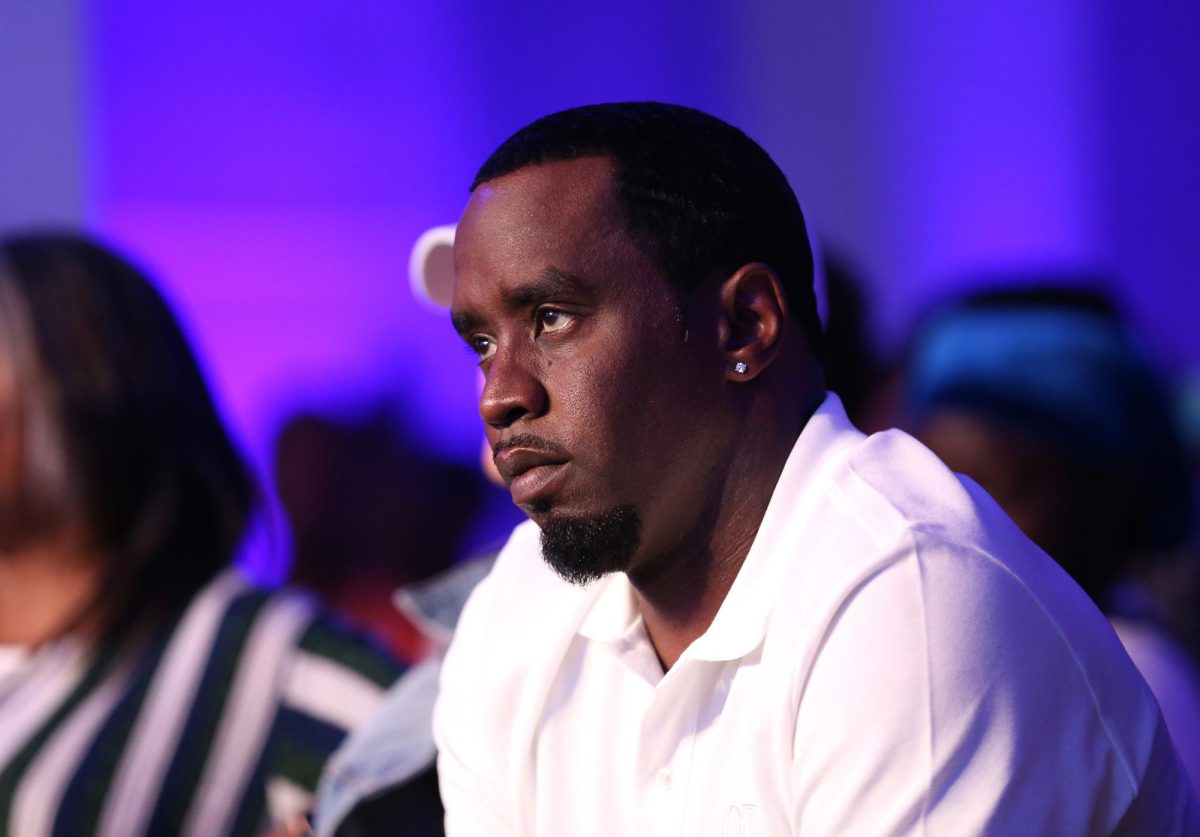Sean Combs, the producer-turned-rapper largely credited for the popularization of hip-hop in the early 1990s goes by a multitude of names. ‘Puff Daddy,’ ‘P-Diddy,’ ‘Diddy,’ ‘Love,’ and ‘Puffy’ are just a few. Recently though, he gained a few more rather sinister titles attached to him. Sexual predator, trafficker, racketeer and potential murderer are just a few.
Combs is an R&B artist, rapper and record producer and executive. For decades he presented the image of a wealthy music mogul. He created his entire brand around the fact that he threw the absolute best parties. Combs was at the center of one of the rap world’s most notorious — and deadly — beefs between Tupac and Notorious B.I.G.
He capitalized on hip-hop’s shift into mainstream culture at the dawn of a new millennium, solidifying his presence in Hollywood for years to come (NBC).
Combs was recently charged with sex trafficking, racketeering and transportation to engage in prostitution. He was arrested Monday Sept. 16 and pleaded not guilty to the charges the following day. A federal judge denied him bail and he will remain in federal detention.
According to CNN, Tarnofsky said, “My concern is this is a crime that happens behind closed doors even when pretrial services are monitoring,”
Particularly, the indictment accused him of leading a ‘criminal enterprise’ with other coworkers and employees. It also describes the drug-fueled “freak-offs” or elaborate sex performances in which he drugged and coerced victims into extended sex acts with male sex workers. Combs would host these meets as after parties, along with the illumination of the items found within his house when searched by law enforcement.
The first charge in the indictment is racketeering conspiracy, a federal crime used to target organized criminal syndicates, known as an “enterprise,” such as the Mafia.
“Members and associates of the Combs Enterprise engaged in, and attempted to engage in, among other activities, sex trafficking, forced labor, interstate transportation for purposes of prostitution, coercion and enticement to engage in prostitution, narcotics offenses, kidnapping, arson, bribery, and obstruction of justice,” the indictment states.
He also would record these acts and use them as blackmail, in order to keep victims and perpetrators silent.
“Combs also used the sensitive, embarrassing, and incriminating recordings that he made during Freak Offs as collateral to ensure the continued obedience and silence of the victims,” the indictment states.
Unfortunately, this is not the first time in which a scandal like this has taken the headlines by storm. Take Watergate, or Epstein for example.
“We’ve seen this pattern before — someone in a position of power and influence chooses to exploit others for their own gain, using fear, manipulation and violence to maintain control over his victims,” Fatima Goss Graves, president and CEO of the National Women’s Law Center, said in a statement.
While people love celebrity drama, this scandal has shocked the world beyond comparison. This is not just a matter of a civilian who happened to do something inherently evil, but rather, a person who was well respected. This personal connection makes this story unlike anything else.
In the age of social media, it is easier than ever to hide the parts of life people don’t want seen and flaunt the parts people want visible. People might think they know from social media often have a parasocial relationship, but they never really know what someone is like off screen, or off page.




